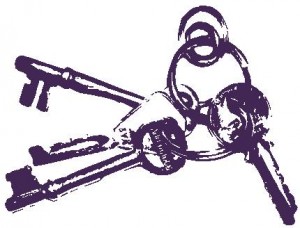Where and how to use keywords in website writing
 If you know your keywords, here are the best places to use them on your website for search engine optimization (SEO).
If you know your keywords, here are the best places to use them on your website for search engine optimization (SEO).
1) Webpage title. Each page and blog post on your website needs a unique title which should be 70 characters or less. Usually, the average reader doesn’t notice the page titles because they’re not displayed on the page; they show up in the tab on the top of the screen. However, page titles are incredibly important because they’re used by search engines to index and display pages.
- This is the tab for my webpage “Client Work.” The title that search engines see and display is “Writing Samples | Chicago Freelance Writer”
4) Headlines and subheads. While these are not ranked as high as titles by search engines, having keywords in your headlines and subheads (in HTML, these are marked with H1, H2 and H3 tags) helps search engines analyze and categorize your page’s content.3) Anchor text. Anchor text means that keywords are hyperlinked, which also helps boost your rankings. If your keyword phrase is “music classes for kids,” use those specific keywords to link to other content on your site. (YES: “Read more about music classes for kids” NO: “Click here to read about music classes for kids”). Keyword phrases as anchor text are also important for off-page links to your site. For example, if you’re able to get a service to list your business, instead of linking back to your page via just your business name or URL, see if you can get linked using your keyword phrase.
5) Text itself. Once you have keywords in their proper places, definitely use them in your page’s text, but don’t overuse them. The best guideline is to use natural language — otherwise, your page will read awkwardly. Worse, if search engines suspect you of “keyword stuffing,” your page may be penalized and ranked lower.
If you don’t know what your keywords are, here’s a quick guide to how I do keyword research (along with some free keyword tools).
How do you find and use your keywords?

